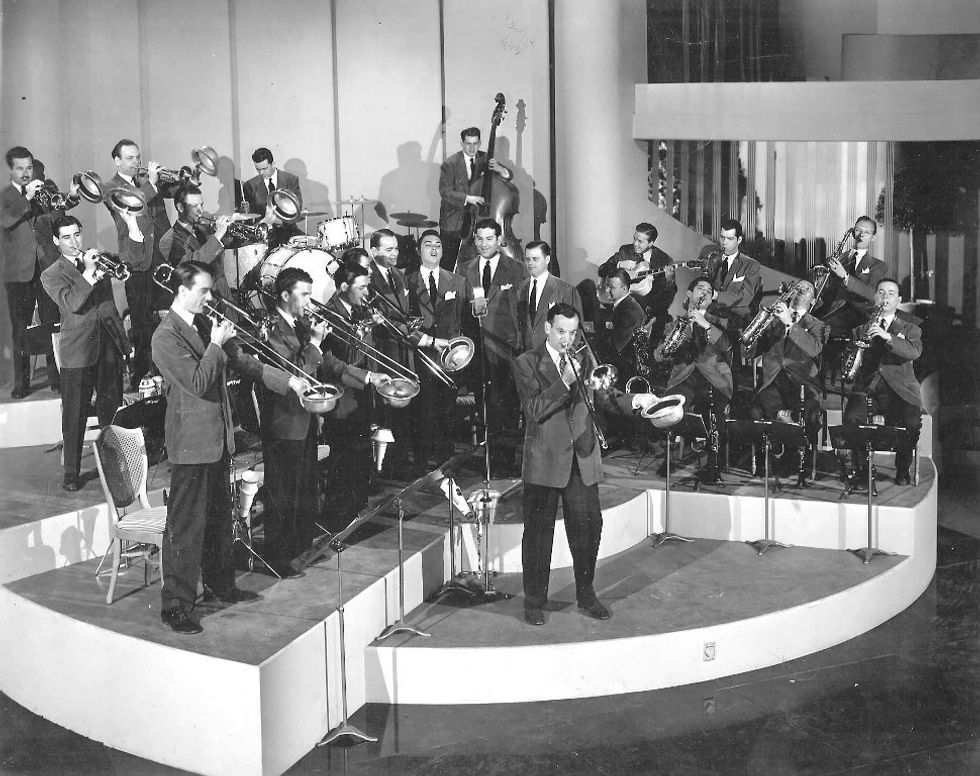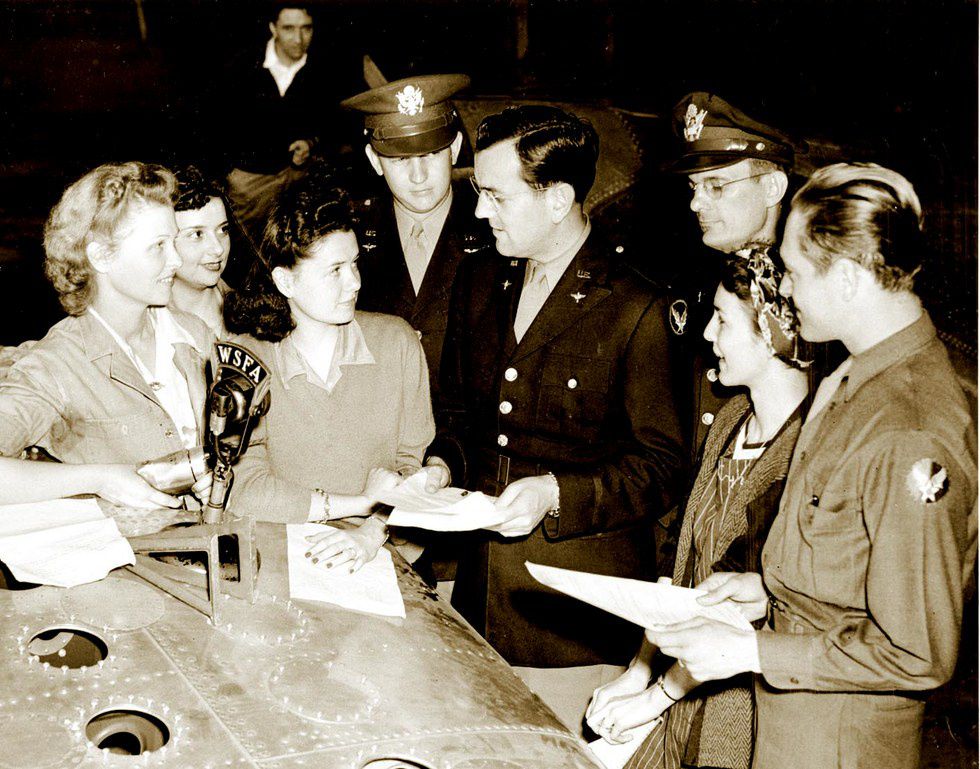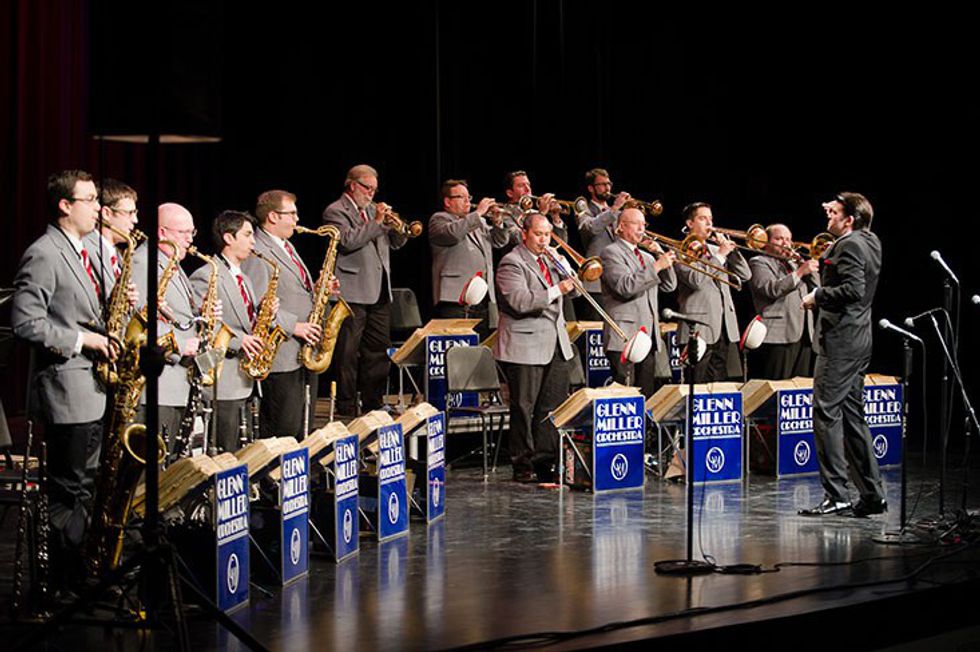Music can often be a fad like anything else. Bands come and go through the years, seemingly defined by their generation. But once in a lifetime, there is a band that expands beyond its generation to encapsulate several decades and generations. I want to take a look at one of those bands. I feel that as time goes by, younger generations fail to fully appreciate many of the wonderful things the past has given us, including music. The one band in particular that I would like to point out is none other than Glenn Miller and his Orchestra. Glenn Miller defined the era with his music in the late '30s and early '40s. What's neat is that it never died. It has continued to live on and become ingrained in our culture.
Miller's Rise to Prominence
Glenn Miller grew up in a small town in Iowa. Around the age of 11, he had saved up enough money to buy a trombone. As he went through high school, he became enamored with what was called “dance band music” and decided to pursue music as a career. He joined bands with the likes of Ben Pollack, The Dorsey Brothers and Victor Young, but soon found that his real passion was not so much in the playing (though he did quite a bit of that) but in composing and arranging. Miller formed his own band in 1937. However, the band had not been able to distinguish itself yet from the other bands of that time and was soon disbanded.
Glenn Miller became convinced that if he was going to have a successful band, it needed to have a unique sound; one that made it stand out above the rest. Actor James Stewart would play Glenn Miller in the 1954 film “The Glenn Miller Story” and delivers the famous line, “A band ought to have a sound all of its own. It ought to have a personality.” That's exactly what Miller went for when he formed his second band in 1938. One of the big things that really distinguished his band was the clarinet lead over the saxophones. This is prominent, for instance, in the song “Moonlight Serenade,” which would become Miller's first top 10 hit and his theme song. With this new sound, Miller and his band gained an enormous amount of popularity. The band's records were selling in record numbers. Songs like “In The Mood,” “Chatanooga Choo-Choo” and “Little Brown Jug” became wildly popular and remained staples in the band's repertoire. The band even featured in a few motion pictures for Twentieth Century Fox. Glenn Miller and his band were perhaps the most famous act in the nation. When Japan attacked Pearl Harbor in December 1941, however, many things changed.
Glenn Miller and his Orchestra playing "Moonlight Serenade" and "I Know Why (And So Do You)"
Enlisting in the AAF
With the attack on Pearl Harbor, America was thrust into the midst of war. Everybody was enlisting to do their duty for their country. Glenn Miller was no different when it came to his patriotic duty. By this point in early 1942, Miller's band was doing so well that his weekly income was between $15,000 and $20,000. Despite that, he disbanded the group. Though he was too old to be drafted at the age of 38, he volunteered for the U.S. Army to become the leader of a modernized Army band. He entered the Army with the rank of captain and was soon transferred to the Army Air Force. Initially, officers were hesitant to allow a band that would break the traditional march-style music that the Army was used to, but it was such a hit with the homesick troops that Miller was soon allowed to put together his 50-piece Army Air Force Band.
Miller and the AAF Band toured England in the summer of 1944 giving 800 performances to uplift the Allied Forces. It was so appreciated by the troops that General James Doolittle said, “Next to a letter from home, Captain Miller, your organization is the greatest morale builder in the European Theater of Operations." Miller also spoke in frequent radio broadcasts to raise morale among the troops and even spoke phonetic German in some broadcasts to the German troops to spread Allied propaganda. Denouncing the fascist oppression in Europe, Miller stated in one German broadcast, “America means freedom and there's no expression of freedom quite so sincere as music.”
On December 15, 1944, Glenn Miller boarded a single-engine aircraft to fly to Paris to meet his band for a performance. He was never seen again; his plane thought to have disappeared somewhere over the English Channel.
A Lasting Legacy
Glenn Miller may have died during that war, but his music has continued to live on from generation to generation. For a few years after the war, an official “ghost band” was led by Tex Beneke (singer and tenor sax player in the original civilian band) and played many of Miller's popular tunes. By 1950, though, Beneke and the Miller estate parted ways. In 1954, the movie “The Glenn Miller Story” starring James Stewart and June Allyson was released to massive acclaim. The demand for Miller's music was coming back in full swing, so in 1956 the Glenn Miller Orchestra led by AAF drummer Ray McKinley hit the road. This iteration of the band, though they have gone through many different musicians through the years, continues to play today.
There's something about the Glenn Miller sound that is completely unique and fun. There are some in the younger generations that probably dismiss this band's music due solely to its age, but it continues to be music that is highly sought after. The Glenn Miller Orchestra continues to play 48 weeks out of the year all around the world. There is just something wholesome and comforting in the Miller music. I was introduced to it at a young age. It influenced me to become a trombone player myself. It has had such an impact on many people over the decades.
I recently attended a concert put on by the current iteration of the Glenn Miller Orchestra. I was so excited to see this band, as I've been wanting to see them ever since I was a kid. As soon as the curtain went up, I felt like I was back in the '40s. An energy seemed to penetrate the entire theater, and the whole crowd (yes, the place was completely full even in 2016) was clapping, singing along and having a grand old time. By the end of the night, my face was hurting because I was smiling the whole time. This music has meant a lot to so many people over the years, and the current band still has that electricity that made the original such a wonderful spectacle. Glenn Miller may be gone, but he has proved one thing: good music is timeless.





















